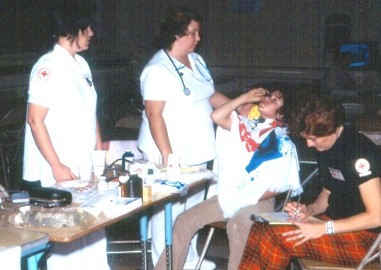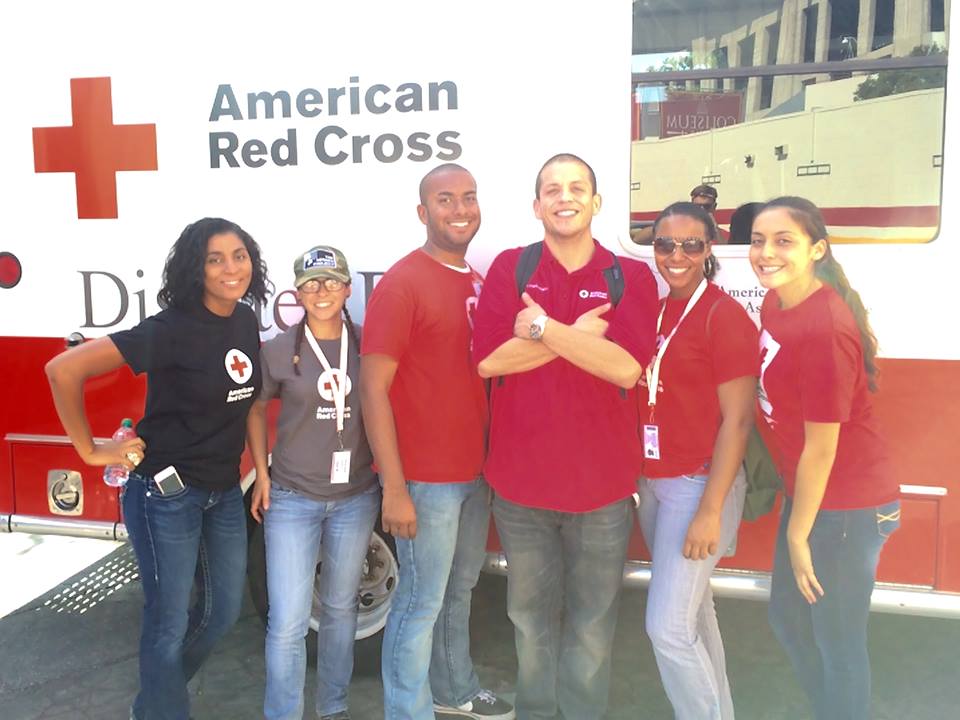 Throughout the Red Cross Month of March, the Red Cross Los Angeles Region is Celebrating its 100 Years of Service with a series titled: Centennial Flashback. This will be a historical snapshots about the Red Cross L.A. Chapter in action during the past 100 years.
Throughout the Red Cross Month of March, the Red Cross Los Angeles Region is Celebrating its 100 Years of Service with a series titled: Centennial Flashback. This will be a historical snapshots about the Red Cross L.A. Chapter in action during the past 100 years.
Devastating wild fires in 1980, known as “The Fires of November,” kept all Red Cross Southern California chapters busy for many weeks.
They began on November 16, 1980 when eight fires broke out across the Southland, requiring a major American Red Cross relief response. While fire fighters still battled those fires, the “devil” winds stirred up more fires just eight days later.
The first fire, on November 16, was in the Bradbury-Duarte area, and it destroyed 60 homes, damaged 50, left one person dead and 20 injured. As other fires broke out, local Red Cross chapters cooperated to open eight shelters for families fleeing their homes in Malibu, the San Fernando Valley and Orange County.
The later fires in San Bernardino County destroyed 338 homes, damaged 160, and left five persons dead and 160 injured.
This was not the end, however, as a few days later the dry winds reignited the fires in Orange County and fires continued in the Inland Empire. Seven more shelters opened, the largest of which was the National Orange Show Grounds, where approximately 17,000 people and media from as far away as the East Coast gathered to wait.
And, as if wildfires were not enough, right in the middle of this major relief operation, a devastating fire broke out at the MGM Hotel in Las Vegas, requiring many chapter disaster workers to fly to Nevada to assist. This fire, too, was fatal. Some died in the fire, but several leaped or fell to their death from the roof where they were awaiting helicopter rescue.
These fires were a great challenge to the American Red Cross of Greater Los Angeles and to all Southland chapters, one that was met by the usual dedication of the volunteer and paid staff.
By Barbara Wilks, former L.A. Chapter Historian





